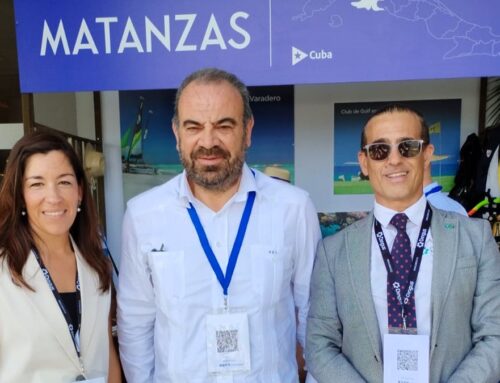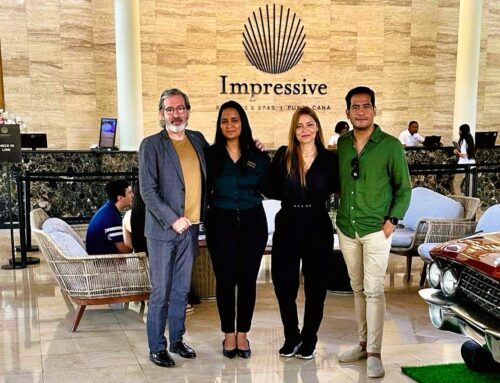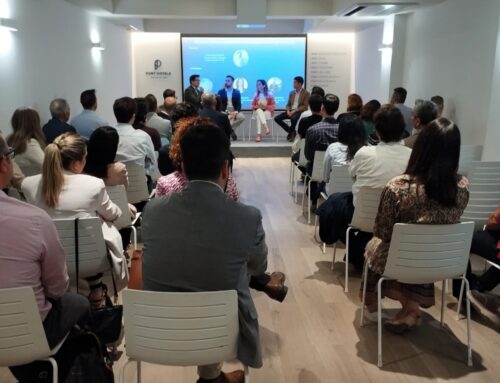- The members of Turistec, a cluster of technologies applied to tourism to which Dingus belongs and which is chaired by our CEO, Jaume Monserrat, were able to see first-hand the most complete picture taken to date by the public administration of the tourism sector and its post-pandemic possibilities. Carlos Romero (Director of Research, Development and Innovation at Segittur and member of the cluster’s advisory committee) explained to the attendees of the online meeting the most important conclusions of the report “Tourism innovation and smart specialisation. Essential levers for recovery” and suggestions for the reinvention and recovery of the tourism sector.
“The aim is to help to propose better strategies to promote a faster recovery in the current context, and to guide decision-making”. Carlos Romero explains the compilation of indicators and their implications that Segittur, the Cotec Foundation and the Infyde consultancy firm have published as a report, covering “the period between the 2008 crisis and the arrival of Covid-19. It is an analysis of the characteristics of our tourism sector from the perspective of the capabilities of each territory,” said Romero.
In the book “Tourism innovation and smart specialisation. Essential levers for recovery” highlights how “the arrival of the pandemic brought the locomotive of world tourism, an industry of almost 1.5 billion tourists, which generates 330 million jobs (10.4%) worldwide, to a grinding halt. No country has been left unscathed in this perfect storm for a sector accustomed to permanent growth”. Until Covid, Spain was “the second destination in the world and the first in Europe, holding the first place in tourism competitiveness with 72 billion euros in revenue (12.4% GDP) and 2.5 million jobs”. Between 2000 and 2018, the sector has been able to create more than 44,000 companies, favouring a growth of close to 30% in the number of international tourist arrivals over the last four years (pre-pandemic). With all this, the also member of the Turistec advisory committee explained that now “it is critical to reflect on the post-Covid model and a facilitating policy adapted to the new context”.
Among the aspects analysed, it highlights how tourism generates a high impact on the production of other sectors, with the top three suppliers being the agri-food industry (representing between 15% and 20% of purchases), wholesale and retail trade (between 8% and 15%) and real estate activities, which account for 6% to 10% of purchases, so that the pandemic “has highlighted these interrelationships through the impact between sectors”.
Some Spanish regions, especially the 13 autonomous regions that consider tourism as a priority within their RIS3 (Research and Innovation Strategies for Smart Specialisation), point to this activity as a driving force for other sectors, “dynamising rural areas and providing Smart growth, with innovation and technology being constant references”. This is one of the reasons why the report stresses the opportunity to “take advantage of the clear opportunities for interregional interaction and convergence in the field of tourism innovation, in areas such as business, cultural, nature and health tourism. It is also possible to create synergies in five major technological areas of possible interaction: ICTs oriented towards tourism business development; technologies oriented towards cultural heritage; passenger transport and logistics technologies; technologies oriented towards gastronomic tourism, as well as others related to health tourism”.
In the expert’s opinion, “synergies and joint actions must be promoted under the DTI model and the DTI Network, and a joint and coordinated work model must be considered at national level in the field of innovation, which allows the capacities and opportunities detected by the RIS3 to be developed. It is also necessary to improve the availability of information in the different areas of tourism R&D&I, in order to better understand the (innovative) idiosyncrasies of the sector and the specific needs of its companies and destinations”. In conclusion, an agenda and roadmap should be promoted in the tourism sector in terms of R&D&I for the sector, with the aim of positioning Spain as the world’s leading power in tourism technologies.
An opportunity to reset and reorient tourism policy for the coming years
Innovation, knowledge and smart specialisation are, according to the study, some of the keys to reorient post-Covid tourism policy and promote a ‘reset’ that, rather than a structural change, serves to “reflect on the sector’s competitive model and its role in the economy: resilience, sustainability and knowledge, more as factors of sustainability than as fine words. Tourism must evolve towards more sustainable consumption and production models that contribute to promoting the circular economy and the fight against climate change”.
In welcoming the event organised by Turistec, the president of the cluster and CEO of Dingus. endorsed the central idea of achieving a tourism sector with greater added value, based on new models of smart tourism and knowledge-intensive tourism companies, innovation and new technologies. Jaume Monserrat thanked Carlos Romero for the opportunity to share the indicators with the partners, a “very qualitative and important work to propose the roadmap that companies need”.
The report does not skimp on detailing the obstacles and problems that the reality of such a complex industry presents. It identifies among the limitations to innovation (with R&D spending by tourism companies below that of the Spanish economy as a whole, according to the data collected), access to financing, the lack of qualified personnel and business cooperation. Precisely because of these shortcomings, “Turistec is working to promote solutions, more collaborative models (between companies and with the public sector) and promoting training, making advice and the exchange of information/knowledge one of the cluster’s priority objectives”.












